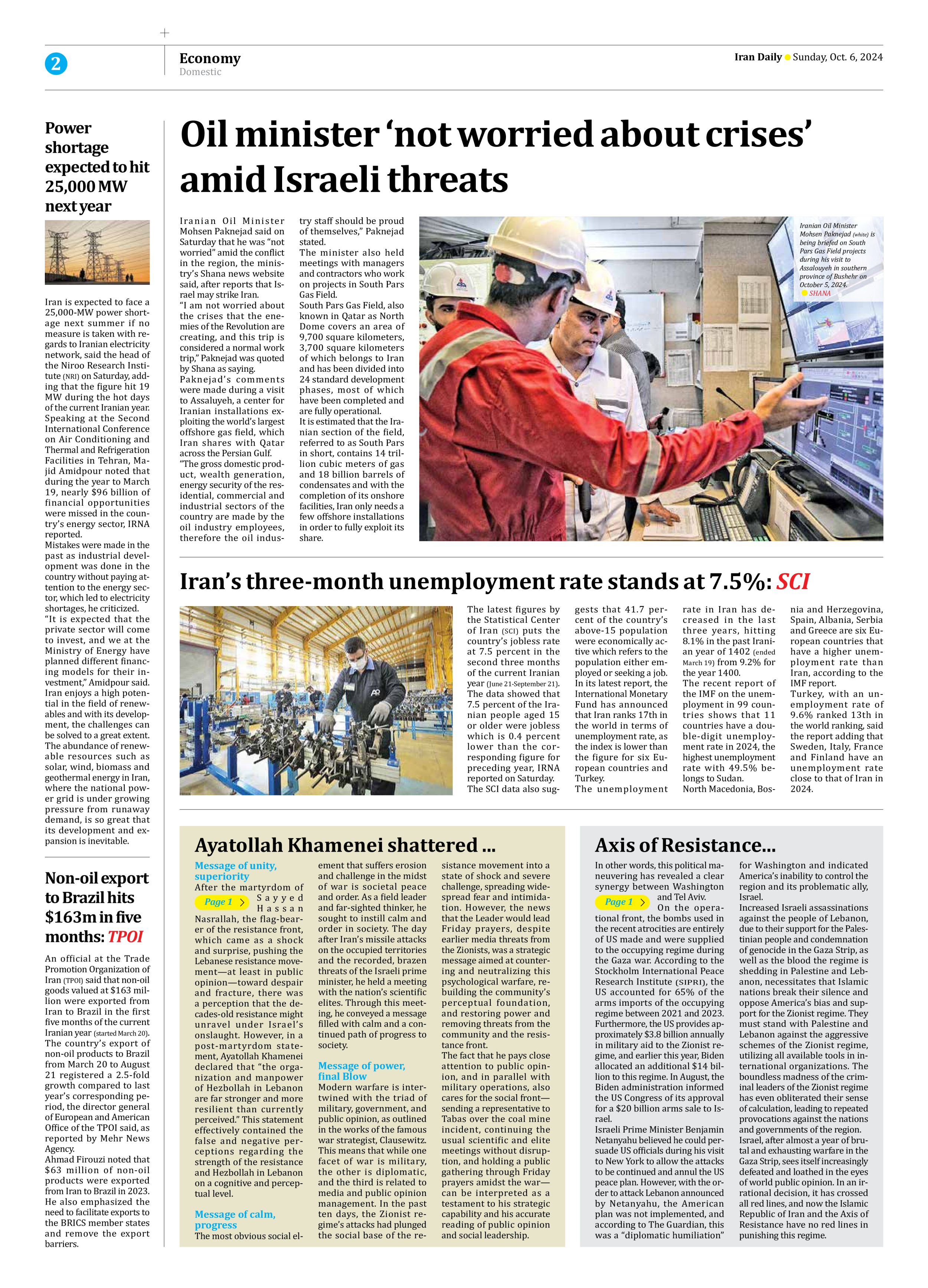
Ayatollah Khamenei shattered ...
Page 1
Message of unity, superiority
After the martyrdom of Sayyed Hassan Nasrallah, the flag-bearer of the resistance front, which came as a shock and surprise, pushing the Lebanese resistance movement—at least in public opinion—toward despair and fracture, there was a perception that the decades-old resistance might unravel under Israel’s onslaught. However, in a post-martyrdom statement, Ayatollah Khamenei declared that “the organization and manpower of Hezbollah in Lebanon are far stronger and more resilient than currently perceived.” This statement effectively contained the false and negative perceptions regarding the strength of the resistance and Hezbollah in Lebanon on a cognitive and perceptual level.
Message of calm, progress
The most obvious social element that suffers erosion and challenge in the midst of war is societal peace and order. As a field leader and far-sighted thinker, he sought to instill calm and order in society. The day after Iran’s missile attacks on the occupied territories and the recorded, brazen threats of the Israeli prime minister, he held a meeting with the nation’s scientific elites. Through this meeting, he conveyed a message filled with calm and a continued path of progress to society.
Message of power, final Blow
Modern warfare is intertwined with the triad of military, government, and public opinion, as outlined in the works of the famous war strategist, Clausewitz. This means that while one facet of war is military, the other is diplomatic, and the third is related to media and public opinion management. In the past ten days, the Zionist regime’s attacks had plunged the social base of the resistance movement into a state of shock and severe challenge, spreading widespread fear and intimidation. However, the news that the Leader would lead Friday prayers, despite earlier media threats from the Zionists, was a strategic message aimed at countering and neutralizing this psychological warfare, rebuilding the community’s perceptual foundation, and restoring power and removing threats from the community and the resistance front.
The fact that he pays close attention to public opinion, and in parallel with military operations, also cares for the social front—sending a representative to Tabas over the coal mine incident, continuing the usual scientific and elite meetings without disruption, and holding a public gathering through Friday prayers amidst the war—can be interpreted as a testament to his strategic capability and his accurate reading of public opinion and social leadership.







